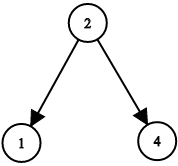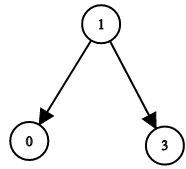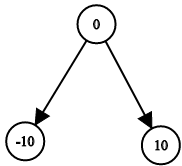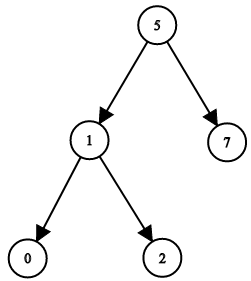Two Sum BSTs in Linear Time
Medium-level problem: https://leetcode.com/problems/two-sum-bsts/




Likely the author is expecting an O(nlogn) solution, but there is a way to do in O(n) if you're willing to spare some extra space:
Given two binary search trees, return
True if and only if there is a node in the first tree and a node in the second tree whose values sum up to a given integer target.
Example 1:


Input: root1 = [2,1,4], root2 = [1,0,3], target = 5 Output: true Explanation: 2 and 3 sum up to 5.
Example 2:


Input: root1 = [0,-10,10], root2 = [5,1,7,0,2], target = 18 Output: false
Constraints:
- Each tree has at most
5000nodes. -10^9 <= target, node.val <= 10^9
Likely the author is expecting an O(nlogn) solution, but there is a way to do in O(n) if you're willing to spare some extra space:
- Push the items from the first tree (non-recursively) into a Hashtable
- Go thru each item in the second tree looking for Target-Item in the Hashtable
Runs in 120ms. Code is below, cheers, ACC.
public class Solution
{
public bool TwoSumBSTs(TreeNode root1, TreeNode root2, int target)
{
if (root1 == null || root2 == null) return false;
Hashtable ht = new Hashtable();
Queue queue = new Queue();
queue.Enqueue(root1);
while (queue.Count > 0)
{
TreeNode tn = (TreeNode)queue.Dequeue();
if (!ht.ContainsKey(tn.val)) ht.Add(tn.val, true);
if (tn.left != null) queue.Enqueue(tn.left);
if (tn.right != null) queue.Enqueue(tn.right);
}
queue.Enqueue(root2);
while (queue.Count > 0)
{
TreeNode tn = (TreeNode)queue.Dequeue();
if (ht.ContainsKey(target - tn.val)) return true;
if (tn.left != null) queue.Enqueue(tn.left);
if (tn.right != null) queue.Enqueue(tn.right);
}
return false;
}
}



Comments
Post a Comment